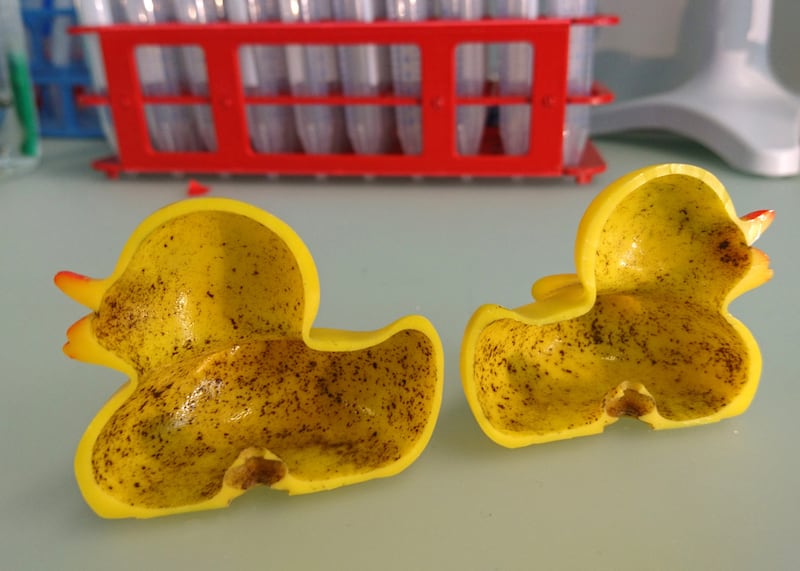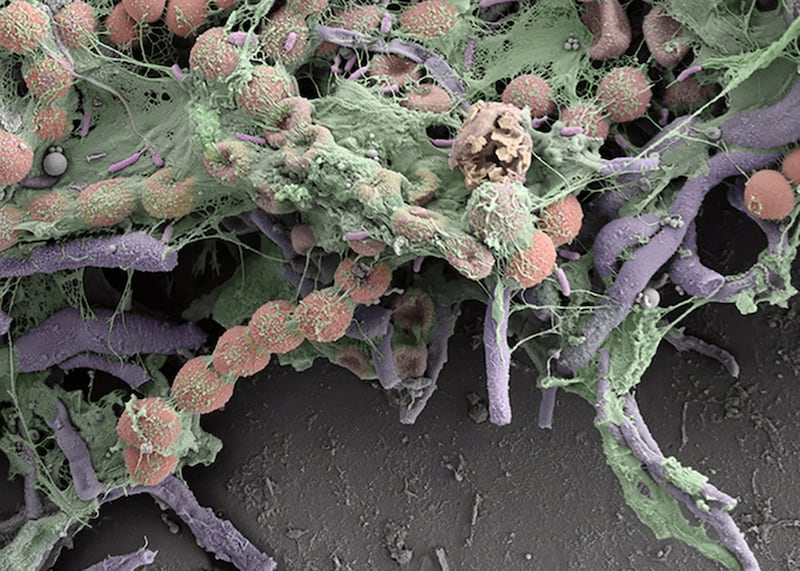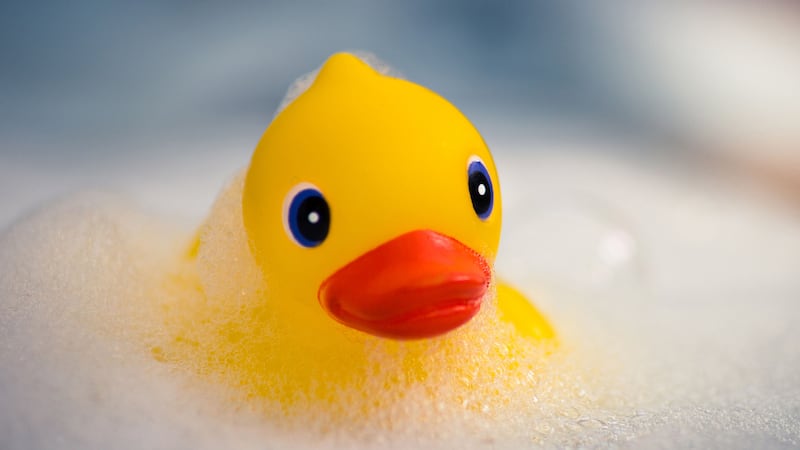Your beloved bath-time playmate, aka the rubber duck, may be a haven for bacteria. At least that’s what a new study suggests.
Scientists claim to have dished the dirt on the cute playthings, saying four out of the five toys studied contain potentially pathogenic bacteria.
A team of researchers in Switzerland and the US counted the microbes and found up to 75 million microbial cells per square centimetre lurking within the murky liquid inside the toys.
The bacteria found included Legionella and Pseudomonas aeruginosa – a bug that, according to the authors, is “often implicated in hospital-acquired infections”.

The team detected fungal species in almost 60% of the bath toys and potentially disease-causing bacteria were identified in 80% of all the toys studied.
The microbiologists say that while tap water doesn’t usually foster the growth of bacteria, the low-quality polymers in the plastic materials give them the nutrients they need.
Bodily fluids like urine and sweat, along with soap and personal care products in bathwater, allows nutrients like nitrogen and phosphorus to develop, creating a thriving haven for bacteria.
The authors say children “who may enjoy squirting water from bath toys into their faces” are at risk of developing infections.

Dr Frederik Hammes, of The Swiss Federal Institute of Aquatic Science and Technology, said squirting water “could strengthen the immune system, which would be positive, but it can also result in eye, ear, or even gastrointestinal infections”.
Dr Hammes, who said he wasn’t surprised by the findings, added: “Mouldy bath toys are widely discussed in online forums and blogs, but they have received little scientific attention to date.”
The scientists say using higher-quality polymers to make the rubber ducks could prevent bacterial and fungal growth.
The study is published in the journal Biofilms and Microbiomes.








